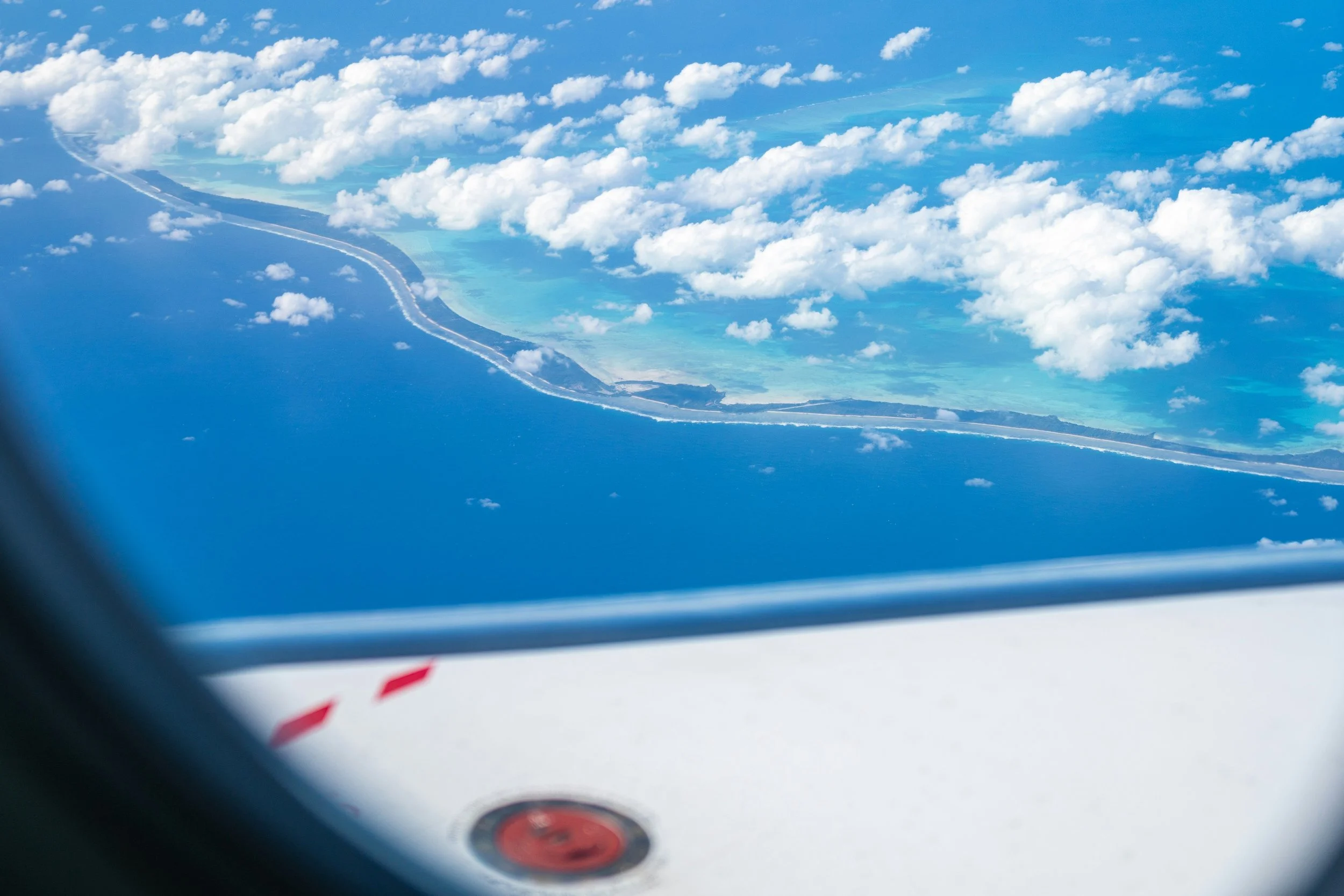THE WHITE SANDS OF KIRIBATI
Kiribati, a remote island nation scattered across the central Pacific, remains one of the world’s least-travelled destinations. Comprising 33 atolls and reef islands, it straddles both the equator and the International Date Line, making it not only geographically unique but culturally rich and spiritually grounded. For adventurous travellers looking to escape the tourist trail, Kiribati offers a rare opportunity to engage with a place where tradition and community life continue undisturbed by mass tourism.
Unlike more commercialised island destinations, Kiribati isn’t about five-star resorts or all-inclusive packages. It’s a place where visitors are invited into the rhythm of local life. Community-based tourism plays a central role here, where hospitality often means staying with local families, sharing meals, and participating in daily activities. Whether it’s learning to weave mats from pandanus leaves or watching a traditional dance performance under the stars, each moment reflects the islanders’ deep connection to culture, values, and land.
The natural environment of Kiribati is just as compelling. Its coral atolls are surrounded by turquoise lagoons and teeming marine ecosystems. Diving and snorkelling reveal vibrant reefs filled with colourful fish, while calm waters offer idyllic conditions for kayaking and traditional canoeing. Fishing—still a vital part of life here—is both a subsistence practice and a cultural tradition, often shared with visitors as part of local experiences.
One of the country’s defining qualities is its resilience and simplicity. Life in Kiribati is lived in tune with the tides, weather, and the needs of the community. Despite the challenges of climate change and rising sea levels, the people of Kiribati remain fiercely proud of their heritage. Tourism, while modest, is being developed thoughtfully to ensure it supports rather than disrupts the social and ecological balance of island life.
For travellers, this means that visiting Kiribati is less about consumption and more about connection. There are few distractions—no malls or nightlife strips—just open skies, warm smiles, and a chance to understand a way of life built on cooperation and respect. This type of tourism leaves a lasting impression not just because of what you see, but because of the people you meet and the way they welcome you into their world.
Accommodation options are simple but heartfelt, with guesthouses and eco-lodges often run by locals. These stays offer a more personal and meaningful way to explore the islands, where each day brings new stories, shared meals, and spontaneous encounters with everyday island life. Visitors quickly discover that in Kiribati, it’s not about what you do—it’s about how deeply you experience it.
In a world increasingly dominated by fast travel and commercialised experiences, Kiribati stands apart as a reminder of what travel can truly be: an exchange of culture, a moment of stillness, and a step into a lifestyle shaped by ocean, land, and legacy. For those seeking authenticity, sustainability, and soulful adventure, this island nation is a destination worth discovering—quietly and respectfully.



